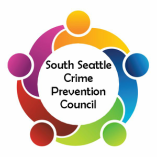Identity Theft Scams
Identity theft assumes many ways forms, from a criminal using a stolen credit card to the wholesale theft of one's name and personal data to illegally conduct business. An identity thief seeks to know another's name, birth date, Social Security number, address, bank and credit history/information--any and all data that will grant access to a potential victim's money. Should an identity thief steal your pertinent biographical and financial information, the least of your worries may be paying for a cell phone you didn't buy: your losses may include a compromised or ruined good credit history, a depletion of savings and/or retirement accounts, or failing to gain (better) employment as many employers, like financial institutions and landlords, check an applicant's credit history as part of their screening processes.
Identity theft scams may be attempted online, via unsolicited telephone calls, through the US mail, and "in-person": purse/wallet theft, lost bank/credit card, unauthorized access to checks and personal documents which were improperly discarded or shredded. However they may occur, the following are steps one can take to safeguard one's private data from identity theft.
Prevent identity theft:
The Seattle Police Department's Community Online Reporting Program (CORP) accepts online reports of identity theft; go to the SPD's page at seattle.gov/police/report and follow the instructions provided. The Washington Coalition of Crime Victim Advocates (WCCVA) maintains a page on their website which offers links to a variety resources to avoid and, if necessary, deal with the results of identity theft; visit WCCVA's page at wccva.org/identitytheftalliance.htm. The Federal Trade Commission (FTC) also takes reports about identity theft; visit their website at ftc.gov.
Identity theft scams may be attempted online, via unsolicited telephone calls, through the US mail, and "in-person": purse/wallet theft, lost bank/credit card, unauthorized access to checks and personal documents which were improperly discarded or shredded. However they may occur, the following are steps one can take to safeguard one's private data from identity theft.
Prevent identity theft:
- Never carry your Social Security Number (SSN) card on your person; never use you SSN as a password
- Never give a stranger your personal information--know to whom and why you reveal your personal data
- Never write password and personal information numbers (PINs) on paper you carry in your purse or wallet
- Memorize your Social Security Number, and the PINs and passwords for your financial accounts
- Never write bank account information on the outside of bill payment envelopes
- Always know how much money you have in bank accounts and retirement accounts
- Always check bank/financial/credit/loan bills and statements for accuracy
- Immediately report discrepancies, mistakes, and unknown transactions/charges; also contact police
- Completely shred/destroy ATM receipts, and destroy/shred all bank/financial/health records in a timely fashion
- Cut through/destroy the magnetic strips of bank/credit and ID cards you no longer want
- Know whom to call when reporting the loss or theft of your purse/wallet, credit cards,IDs, etc.
- Beware of your surroundings! Ensure that when using an ATM, no one is immediately behind you
- Use secure, locked mailboxes when possible; avoid using non-locked mailboxes for outgoing bills/financial matters
- When out of town, have mail held by US Post Office or use trusted person to get mail daily from your home
- Never respond to email requests for personal/financial data--no legitimate bank/financial institution does this
- For online matters, log directly onto websites rather than click on links in emails sent to you
- For social media, only post fake birthdates because you don't want your real birthdate accessible
- Avoid posting specific information about your home address online--tell children to never reveal this via social media
- Please refer to the "Online Banking Scams" and "Computer Virus Scams" pages on our website for more tips
The Seattle Police Department's Community Online Reporting Program (CORP) accepts online reports of identity theft; go to the SPD's page at seattle.gov/police/report and follow the instructions provided. The Washington Coalition of Crime Victim Advocates (WCCVA) maintains a page on their website which offers links to a variety resources to avoid and, if necessary, deal with the results of identity theft; visit WCCVA's page at wccva.org/identitytheftalliance.htm. The Federal Trade Commission (FTC) also takes reports about identity theft; visit their website at ftc.gov.
